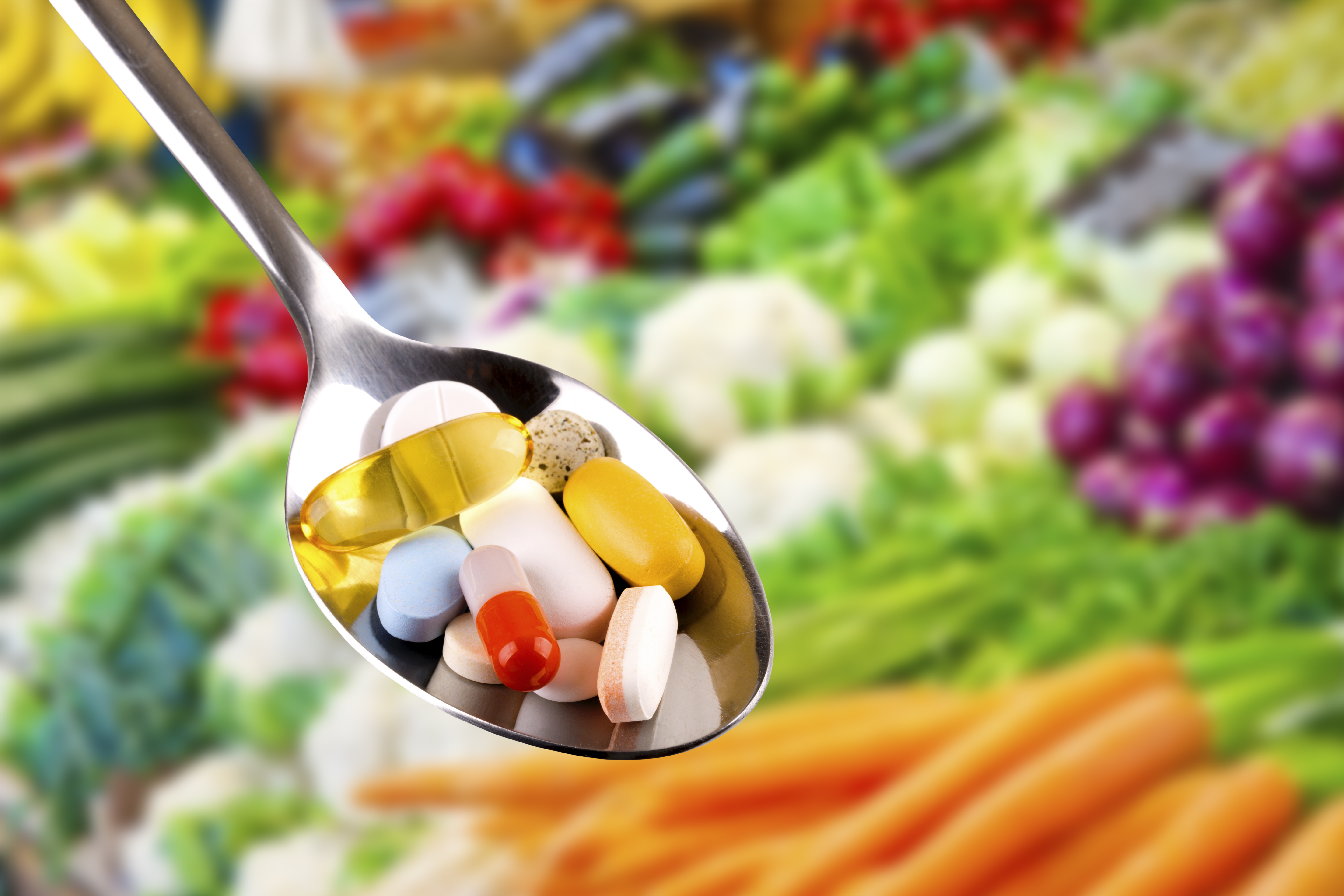
Top Supplements Every Vegetarian Needs
March 6, 2019
Whether you’re a vegetarian or not, modern diets and eating habits do not guarantee you’re getting the vitamins, minerals and nutrients you need. Vegetarians in particular need to make sure they’re getting sufficient vitamin B12, calcium, vitamin D, iodine, iron, omega-3 fatty acids, protein and zinc from their diet, since it is often missing from the foods they consume.
Vitamin B12
Vitamin B12 is only naturally found in animal products such as meat, fish, poultry, eggs, milk and milk products. Even though fortified foods like breakfast cereals can include this vitamin, it is generally not included in plant foods.
Vitamin B12 is important for:
- Proper immune system functioning
- Cellular metabolism
- Red blood cell formation
- Nervous system, ocular and brain health
The recommended daily value for vitamin B12 is 2.4 micrograms per day or, as a supplement, 10 mcg.
Calcium
Calcium is needed to build and maintain strong bones; however, the heart, muscles and nervous system also need calcium for proper functioning. While vegetables and dark, leafy greens have calcium in them, there may not be enough and this form isn’t absorbed as well as the calcium from dairy products. Depending on age, the recommended daily value ranges from 1,000 – 1,200 mg. per day.
Vitamin D
Vitamin D is needed to help build and maintain strong bones, absorb calcium and keep you from losing too much in your urine. Vitamin D is found in fish, animal livers, eggs, some cheeses and mushrooms. Depending on where you live, most people do not meet the recommended daily value of 600 IU.
Iodine
Iodine is a mineral that plays a role in healthy thyroid functioning, regulating metabolism and calcium absorption. Plant foods contain less iodine than animal foods such as dairy products and seafood and compared to people who eat meat, vegetarians obtain about 25% less iodine. Iodine needs differ with age however, the average adult benefits from consuming about 150 mcg daily.
Iron
Iron is required for energy production, transporting oxygen, proper immune system functioning and DNA synthesis. There are two forms of iron – haem and non-haem. Much like calcium, the non-haem iron found in plants is harder to absorb than iron found in animal foods. For vegetarians, the recommended daily allowances are 1.8 times more than those who consume meat. Suggested daily iron intake varies a little with age, however the average male should consume about 8 mg. daily and the average female should consume about 18 mg. daily. To increase iron absorption, try including some vitamin C.
Omega-3 Fatty Acids
Omega-3 fatty acids are considered “essential” fatty acids because you need to obtain them from your diet since the body is unable to make them. Omega-3 fatty acids are important for:
- Ocular, heart, skin, bone and joint health
- Keeping triglyceride, blood pressure and cholesterol levels in a healthy range
- Making sure blood platelets don’t clump together
- Getting enough sleep and controlling inflammation
Since vegetarians typically don’t eat fish or seafood, they may not be getting the amount they need to maintain a healthy lifestyle. The average adult benefits from the recommended daily amount of 1.1 grams for females and 1.6 grams for males.
Zinc
Most vegetarians obtain zinc through foods such as whole grains, some dairy products, legumes, nuts and seeds. Unfortunately, a lot of plant foods also contain phytate, an antioxidant compound that limits how much zinc is absorbed during digestion. Zinc is important for:
- Cell growth and replication
- Immune system, prostate, ocular and blood vessel health
- Regulating appetite and making digestive enzymes
- Healthy and strong hair, skin and nails
The average male benefits from consuming about 11 mg. of zinc per day while the average female benefits from consuming about 8 mg. per day.
Protein
Protein plays an important part in:
- Keeping hair and nails healthy
- Building and repairing bones, muscles, cartilage, skin and tissues
- Synthesizing hormones and enzymes
Protein is a macronutrient which means that your body needs a lot of it. Since protein is mainly found in animal products, this creates an obstacle for vegetarians to get a healthy amount. The average male should consume about 56 grams of protein daily whereas the average female should consume about 46 grams daily.
Capsules
If you are not meeting the daily dietary requirements, supplementing might be for you. Supplementing is a good way to make sure you are getting the vitamins and minerals you need with your chosen diet however, different supplement capsules are made from different materials – a lot of which are gelatin derived from animals. If supplementing is something you would like to try as a vegetarian, look for capsules made from cellulose or other non-animal substances.
Ready to get started? Then check out some supplements here to help you stay healthy…whether you’re a vegetarian, meat-eater or somewhere in between!


